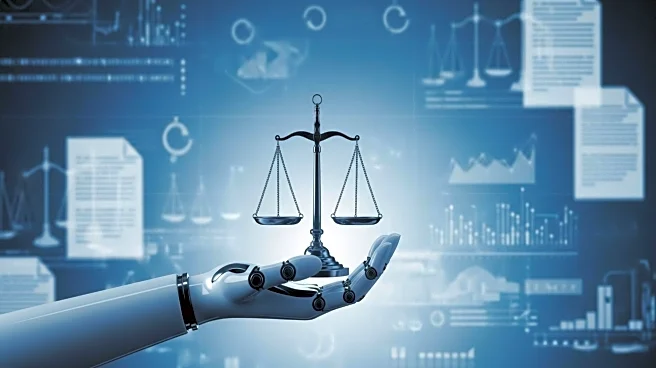What's Happening?
The legal industry is witnessing a shift as law firms increasingly adopt AI-powered tools to handle tasks traditionally performed by paralegals. These tools are being used for tasks such as deposition preparation and citation checking, which are essential components of legal work. While AI is not expected to replace paralegals entirely, it is likely to redefine their roles by automating routine tasks and allowing paralegals to focus on more complex and strategic activities. This trend reflects a broader movement within the legal sector towards embracing technology to enhance efficiency and productivity.
Why It's Important?
The integration of AI in legal practices has significant implications for the industry. By automating routine tasks, AI can help reduce costs and improve the speed and accuracy of legal work. This shift could lead to a transformation in the skill sets required for paralegals, emphasizing the need for adaptability and proficiency in technology. Law firms that effectively leverage AI may gain a competitive advantage by offering more efficient services. However, this transition also raises questions about job security and the future role of paralegals in a tech-driven legal environment.
Beyond the Headlines
The adoption of AI in the legal sector may also prompt ethical and regulatory considerations. As AI tools become more prevalent, there will be a need to ensure that they are used responsibly and that their outputs are reliable and unbiased. Additionally, the legal industry may need to address concerns about data privacy and the protection of sensitive information processed by AI systems. These developments could lead to new standards and guidelines governing the use of AI in legal practices.









